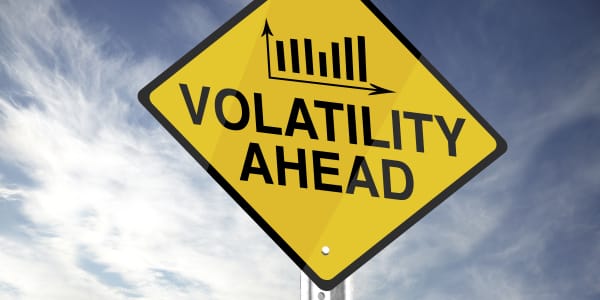The outlook for the U.S. economy is as good as it's been since the financial crisis, but not so for the stock market.
After a near 30 percent gain in 2013, the S&P 500 index is up more than 150 percent since bottoming out at under 700 in 2009. The irony is that while the dismal post–financial crisis economy has consistently underperformed expectations, the stock market has soared. And now that the economy looks like it's picking up momentum, financial experts worry that stock prices could be headed for a fall.
CNBC spoke to financial advisors, investment strategists and economists about their top concerns on the economy and investment markets heading into the new year.
Most market analysts are reluctant to use the word "bubble" to characterize stock markets in the U.S. and other developed countries, but they are getting anxious about price levels.
"We thought [U.S.] stocks would do well this year, but we didn't expect a 25 percent return," said Russ Koesterich, chief investment strategist for asset manager BlackRock. "The market is not a bubble, but it also isn't cheap." Koesterich sees heightened risks in other developed-country stock markets that have also surged of late.
(Read more: D.C. gridlock, stocks worry wonks)
For stock prices to continue rising in the U.S, the economy has to deliver in 2014, said Mike Ryan, chief investment strategist for UBS Wealth Management Americas. "It's been a frustrating economic recovery, but we're seeing more signs that it is broadening out now," he said.
Ryan points to U.S. employment and personal income growth, a stabilized housing market and a much smaller contraction in government spending this year. He also expects positive if modest growth in the Eurozone and 7 percent to 7.5 percent growth in China in the coming year.
It would have been healthier ... if the growth in the equity markets had been milder.Mark CortazzoCertified financial planner, senior partner at MACRO Consulting Group
Given how far the market has already come, it has to add up to significantly better economic growth for valuations to hold. "The equity market has priced in stronger growth," said Joe Davis, chief economist for the Vanguard Group. "It may have to be over 3 percent next year."
For financial advisors, the big run up in stock prices has posed some challenges in managing clients. "It would have been healthier for people if the growth in the equity markets had been milder," said Mark Cortazzo,certified financial planner and senior partner at MACRO Consulting Group. "A lot of people who feel they've missed the boat now think they have to get into the market."
The stretch for yield
The Federal Reserve's zero-interest-rate policy may have helped buttress the economy after the financial crisis, but it's killing investors dependent on income from their portfolios.
"For those who want to buy a house in the next year, it's great, but for savers and retirees and conservative investors, the Fed continues to inflict pain," said Barry Glassman, certified financial planner and president of Glassman Wealth Services.
The pain will continue, as the Fed is expected to keep short-term rates at zero for the foreseeable future. And while rising long-term rates may eventually help, they will continue to hurt existing bond portfolios. Not surprisingly, investors and advisors have been moving out the risk curve in search of more yield.
(Read more: Don't expect big things from D.C. in 2014)
Glassman is investing in short-term high-yield debt for some extra yield. With long-term rates expected to continue rising, most financial advisors are avoiding duration risk.
Meanwhile, Cortazzo is worried about investors stretching too far for a few basis points.
"Our investment committee calls it 'picking up pennies in front of a steamroller,'" he said. "Fixed income is there to be a port in the storm. It's supposed to be boring. If I'm going to take risk, I want more potential upside."
Beware the taper
In the looking-glass world of ultraloose monetary policy, good economic news has, more often than not, meant bad news for the stock market, as investors worried about an end to the Federal Reserve Bank's massive bond-buying program.
Although the Fed and outgoing chairman Ben Bernanke have generally been praised for opening the monetary spigot to avoid an economic meltdown during the financial crisis, closing it without scaring the markets will be a major challenge for Janet Yellen, who succeeds Bernanke as Fed chair on Feb. 1.
"How the Fed manages and communicates its exit strategy [from quantitative easing] is the wild card in the investment outlook," said David Grecsek, director of investment strategy and research at advisory firm Aspiriant. "I think the markets have already factored in higher interest rates and the Fed tapering, but it is a risk."
(Read more: Economists say U.S. economy to turn corner)
So far, so good. The Fed's announcement last month that it would begin reducing its $85 billion monthly bond purchases by just $10 billion in January sent the Dow soaring nearly 300 points. Whether investors view further tapering as a vote of confidence in the economy as opposed to a good reason for an arguably overdue correction in the stock market remains to be seen.
"There's no precedent for this situation," MACRO's Cortazzo said. "The Fed is distorting the natural supply and demand for investments."
—By Andrew Osterland, Special to CNBC.com




